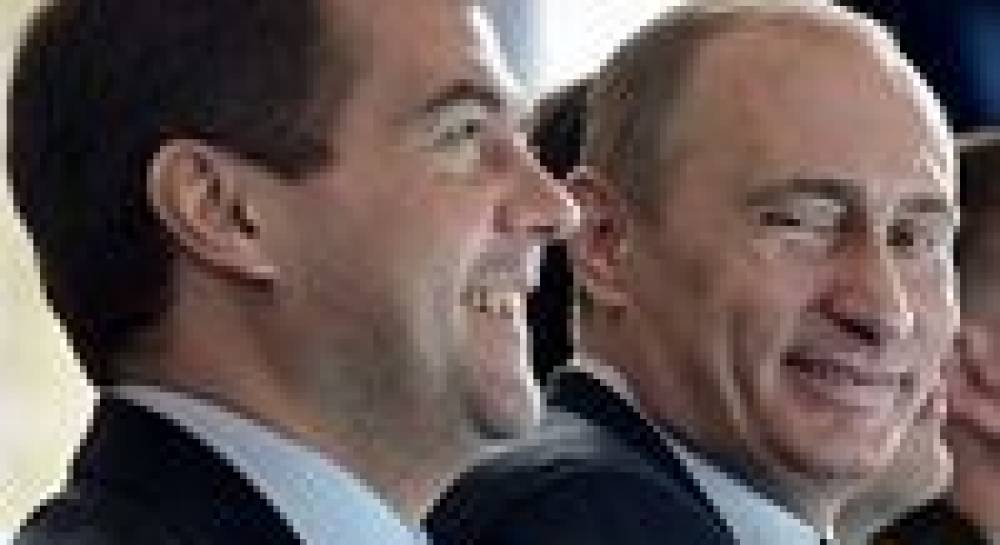
Why Russia may become a big problem for Barack Obama
The economic downturn may crimp Moscow`s ambitions... In Washington, the private mood of some Bush administration officials toward the Kremlin is one of disdain...
Something has gone badly wrong in post-Soviet Russia`s relations with the United States and, for that matter, with the West in general. As a result, dealing with a resurgent Russia that is trending toward autocracy will be a key challenge for the incoming Obama administration.
The fall from the optimistic heights of the 1990s is startling. The collapse of the Soviet Union at the end of 1991 not only ended the Cold War and its menace of potential nuclear catastrophe, it marked the most momentous strategic shift in the international landscape in many decades. The Soviet breakup spawned a newly democratic Russia seemingly ready to set aside past antagonisms and get on with the business of developing itself into a modern society.
But among all the current and emerging great powers of the world, Russia stands out for the degree to which its relationship with the United States has deteriorated during the first decade of this young century. A Russian penchant for strongman-style rule re-emerged under then President and now Prime Minister Vladimir Putin. Power was recentralized inside the high walls of the Kremlin. Through Putin`s United Russia party, the Russian Parliament fell into lock step, while both the news media and provincial authorities were stripped of much of their autonomy and clout.
Assertive U.S. policies on NATO expansion, arms control, and other issues stirred popular resentment inside Russia—and aided Putin`s nurturing of a new Russian nationalism. Fueled by proceeds from the export of oil and natural gas, Russia began reasserting itself abroad, especially in areas that had once fallen under Moscow`s domination. The Russian invasion and partial occupation of Georgia this August serves now as Exhibit A of its willingness to flex muscles that had once atrophied. Russia recognized the independence of breakaway republics South Ossetia and Abkhazia, drawing condemnation in the West. Elsewhere, Russia has turned off the energy spigot to pressure Ukraine and dispatched naval forces to Latin American waters for first time since the Soviet era.
Collectively, the turn of events may represent the most damaging strategic turnabout in what, for lack of a better term, has been known as the post-Cold War era. "We`ve lost Russia," declares Walter Russell Mead, a historian of diplomacy at the Council on Foreign Relations. Writes Rose Gottemoeller, a Russia specialist and former U.S. national security official with the Carnegie Endowment for International Peace, "The crisis in Georgia brings us face-to-face with the reality that the United States and Russia have squandered the opportunity to build a relationship that works for both parties."
As seen from Moscow, the United States—particularly under President Bush but starting with President Clinton—ran roughshod over Russian interests through a period of Russian weakness. "Russia believes that we are besieging them," says French Foreign Minister Bernard Kouchner.
In Washington, the private mood of some Bush administration officials toward the Kremlin is one of disdain. Russian officials, meanwhile, contend that Washington has acted unilaterally. Their list of perceived offenses is long: the U.S.-led bombing of ally Serbia in Clinton`s time; the U.S. abrogation of the Anti-Ballistic Missile Treaty; the expansion of NATO to the doorstep of Russia; U.S. military activities in Central Asia; attempts to route energy pipelines outside of Russia; support for Ukrainian and Georgian political movements considered anti-Russian; military aid to Georgia; and backing the independence of Kosovo from Serbia over Russia`s opposition.
Just one day after Obama won election, Russian President Dmitry Medvedev brushed past the usual congratulations and vowed to install missiles in the Russian enclave of Kaliningrad if the United States—read the future Obama administration—persists in placing a missile-defense shield in Poland and the Czech Republic. That is the sort of tit-for-tat mentality that characterized the Cold War. "I think there is no trust in Russia-U.S. relations," Medvedev allowed later in November. "On many stances, we can`t find common ground."
Obama has said that he supports missile defense in principle, if the system can be shown to work right. But he has also emphasized reaching out to Russia for cooperation on securing loose nuclear materials, deepening arms control, and defeating al Qaeda and other terrorists.
The global financial and economic crisis, coupled with the current drop in oil prices, has slammed Russia`s stock market and spurred the flight of capital, raising doubts about the durability of its resurgence. But in the longer term, Stephen Sestanovich, the Clinton administration`s ambassador-at-large for the former Soviet Union, argues in the journal Foreign Affairs, "Russia`s power may actually keep growing, and carry the country`s ambitions with it."
Obama could use Russia`s help on an array of other problems, from persuading Iran and North Korea to give up their nuclear programs to bolstering energy security to confronting global warming. But that will likely require changes from Washington. "We have not treated them very well," says Brent Scowcroft, the former national security adviser. "We need to show some delicacy and respect and not simply push ahead."

